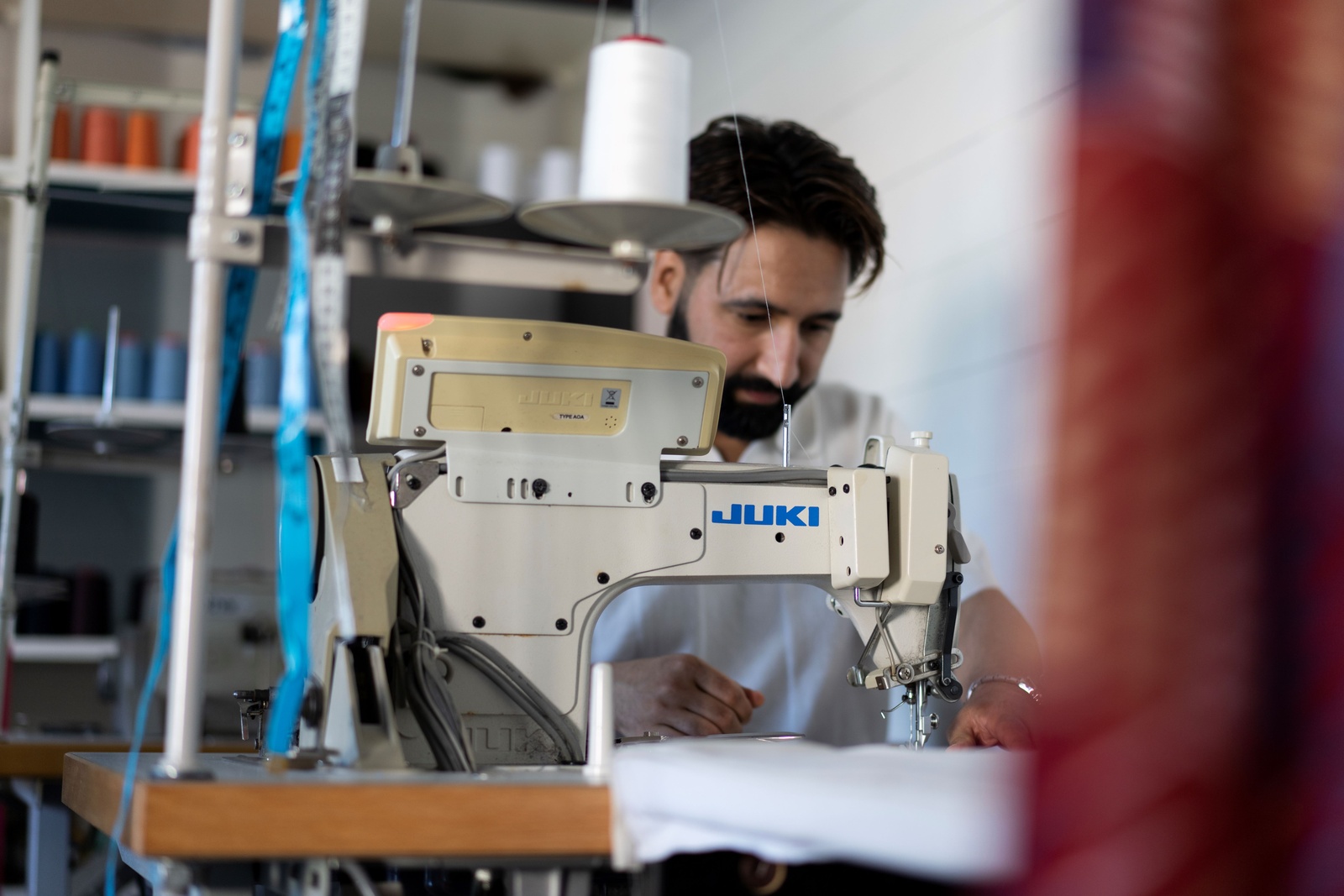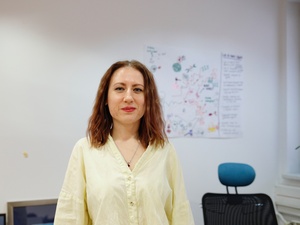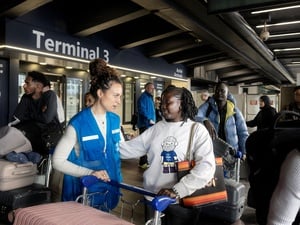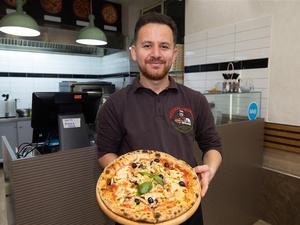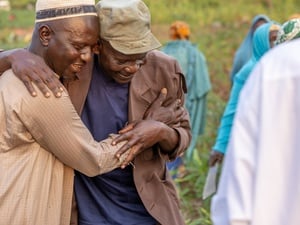Microcredit support helps Afghan designer in France open studio
Microcredit support helps Afghan designer in France open studio

Bashir Salehi, a refugee from Afghanistan started Palme Couture in January 2021 in La Rochelle, France, to provide tailoring services.
LA ROCHELLE, FRANCE — The door of the ‘Palme Couture’ sewing studio in the French seaside town of La Rochelle is wide open, inviting customers to enter. Inside the workshop proprietor Bashir, a refugee from Afghanistan, welcomes his clients with a broad smile before taking bespoke orders for special events, or making adjustments to jackets and dresses that he has designed himself.
Before he was forced to flee his home country of Afghanistan, Bashir was a successful clothing designer with a flourishing business and a dozen employees, designing and making intricate and beautiful garments, often for weddings and other occasions.
“It is very difficult for me to forget about my studio in Afghanistan where I worked so hard for nine years. It is difficult to get over the fact that I had to leave it,” he says.
Bashir found safety in France in 2019, and was offered asylum in La Rochelle, on France’s Atlantic coast, where he began rebuilding his life. His first job was in a local workshop producing fashion accessories from recycled materials, and then he found work for a local tailor making alterations to women’s and men’s clothes. But his dream was to have his own studio and workshop once again where he could design and make tailored clothes for his clients.
“For 10 months I looked for a place where I could open my workshop until I found this place in January 2021,” he says. Finding a premises was an important step, but Bashir needed start-up capital to bring his business dream to life, something that can be a huge challenge for refugees.
Not only is it hard for refugees to navigate unfamiliar requirements and procedures of financial service providers in their new host countries, and in a new language, but banks are often reluctant to extend services to vulnerable groups, including refugees, that they are not used to working with or that they fear might struggle to make repayments.
Micro-finance institution ADIE (Association pour le Droit à l’Initiative Économique) provided Bashir with a lifeline, in the form of a loan to get his business up-and-running. The non-governmental organisation specialises in helping entrepreneurs who want to start their own business but cannot access the traditional banking system.
ADIE provides loans as well as a wide range of support services including training, mentorship, technical support, and counselling to support entrepreneurs in building their businesses and realising their dreams.
“Supporting refugees is in the DNA of ADIE,” says Adrien Gizon, Director of ADIE International. “The founder of ADIE was herself a refugee who fled Poland during Word War II when she was 12 years old.” Half of those helped by ADIE live below the poverty line, while almost a quarter were born outside the European Union.
In order to reach more refugees, ADIE provides information leaflets about its services in many different languages, and has developed partnerships with organisations working specifically with refugees. Today, ADIE supports around 250 refugees a year, but the needs are far bigger.
Importantly, ADIE’s experience with refugees shows that there is no need to create new financial products specifically for refugees, but rather that it is necessary to reach out to refugee communities in order to identify those who need support, and to overcome prejudices in order to trust that refugees will strive for success and repay their loans, just like any other entrepreneur from any other background.
“Refugees are full of resources that they bring to their host countries, they are an asset and not a problem,” says Adrien.
This type of financial inclusion helps refugees, but it also enables them to contribute to the local economy with benefits for all.
For Bashir, living in a new country also means understanding new styles and fashions. He speaks approvingly of the French preference for “simple and chic” designs, and while his workshop is proving successful he keeps dreaming. “I am convinced that one day I’ll do a fashion show, I’ll have my own brand!” he says.
He also has a simple message for other newly-arrived refugees facing the same challenges that he has overcome, of being uprooted, and leaving behind careers and businesses: “Be patient and keep dreaming.”




